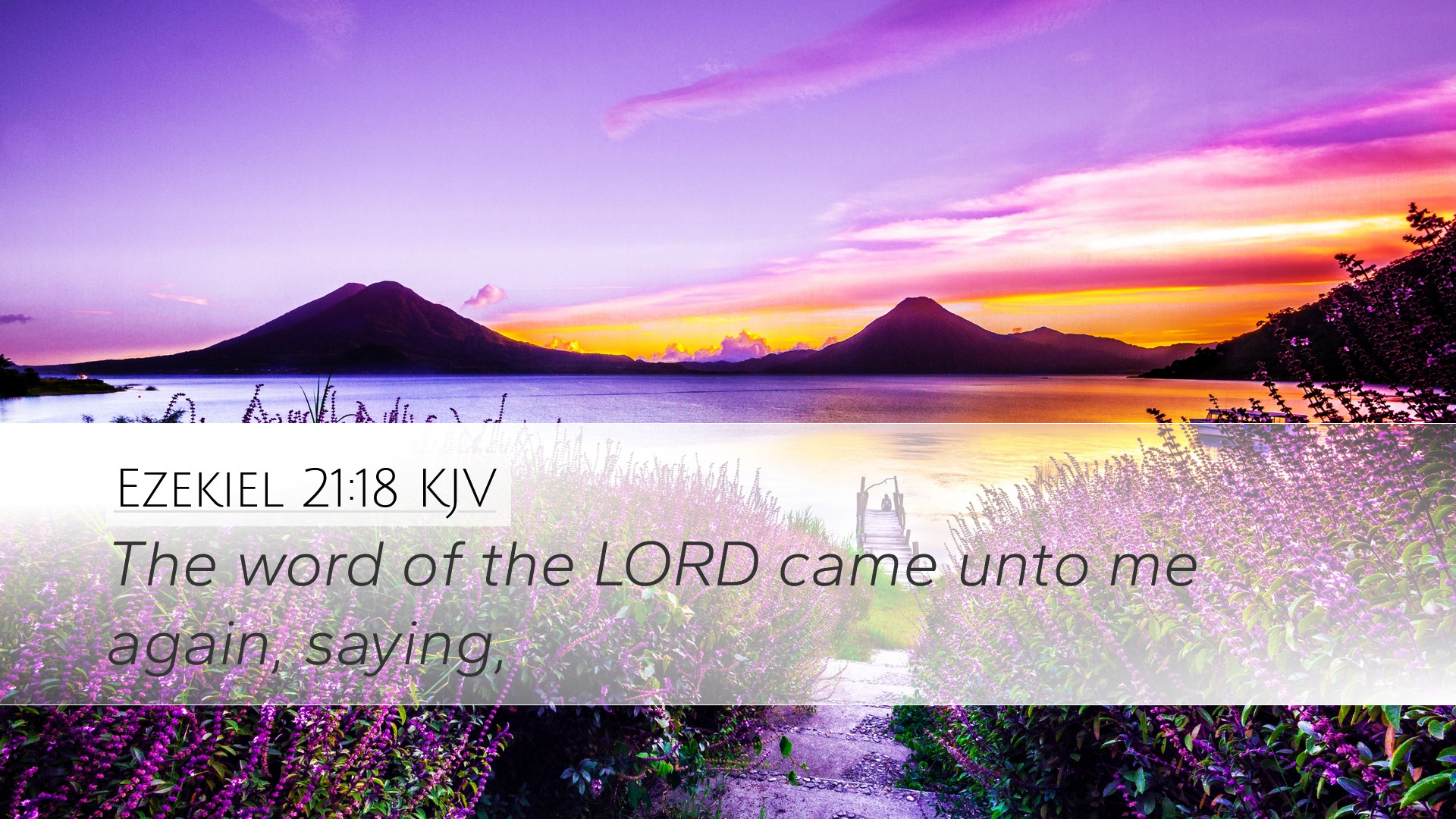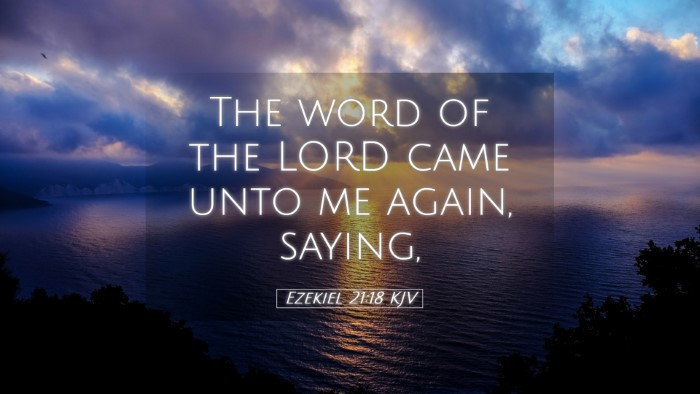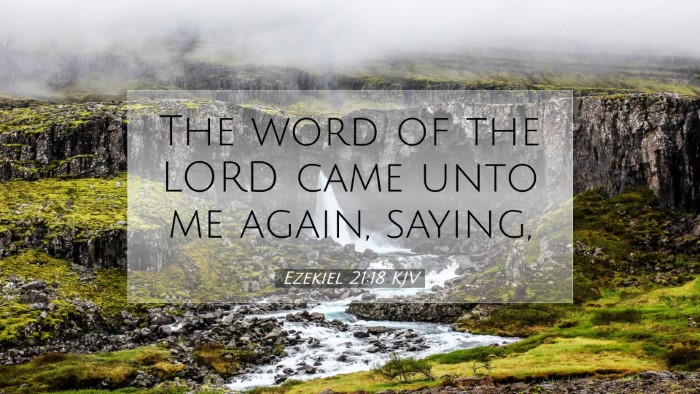Commentary on Ezekiel 21:18
Bible Verse: Ezekiel 21:18 - "The word of the LORD came unto me again, saying,"
Introduction
The Book of Ezekiel is rich with prophetic insights and vivid imagery intended to communicate God's message during a tumultuous period for Israel. Ezekiel 21:18 stands as a pivotal verse in this prophetic work, providing context for both the immediate events surrounding the siege of Jerusalem and the broader themes of divine judgment and hope.
Textual Analysis
Context: Ezekiel’s prophecies often oscillate between judgment and restoration. This specific verse introduces a new message from God to Ezekiel, signaling a significant transition. In the chapters leading up to this point, Ezekiel has already been announcing judgment against Jerusalem. As he presents this new word from the Lord, it is crucial for understanding both the impending consequences and the nature of God's dealings with His people.
Commentary Perspective
-
Matthew Henry:
Henry emphasizes the continuous nature of God's revelation to His prophets, describing how Ezekiel, while in exile, remains a vital channel of communication between God and His people. In this instance, the phrase "the word of the LORD came" reiterates God's active involvement in history, particularly concerning His covenant with Israel. Henry highlights the seriousness with which prompts Ezekiel's later message, recognizing the divine intention to prepare the people for the impending calamity.
-
Albert Barnes:
Barnes notes the significance of the phrase "again saying" as a marker of God's persistent engagement. This repetition signifies God's relentless pursuit to reach His people, even in their disobedience. The context of this declaration is key to understanding the divine decree against Judah—God is not merely announcing ruin but is articulating the consequences of Israel's choices. Barnes draws attention to the distinction in the prophetic messaging, delineating between announced judgment and the hope of eventual restoration, which will later emerge in Ezekiel's prophecies.
-
Adam Clarke:
Clarke provides an observational lens on the implications of the prophetic word. He writes about the reception of God's message, urging on the listeners and readers to grasp the weight of this communication. Clarke points out that this varied and repeated communication is part of God's redemptive plan. The call for attention to God's words can be seen as a pastoral exhortation, urging individuals in the faith community to remain vigilant in understanding the full spectrum of God's will.
Theological Implications
The reiteration of God speaking to Ezekiel serves as an affirmation of God's sovereignty and grace. It encapsulates key themes relevant to theological reflection: the nature of prophecy, the consequences of sin, and the eventual restoration of God's people.
-
God's Sovereignty:
The verse underscores that God is not distant in times of crisis. Instead, through His prophets, He proclaims His will and purpose, even amid judgment. This notion is pivotal for understanding the nature of God as actively engaged in His creation.
-
Human Response:
As God speaks, it requires a human response. The role of the prophets as intermediaries is essential, as they call the people not just to hear but to heed the warnings and the exhortations of God's message.
-
Judgment and Hope:
While this immediate context speaks of impending judgment, the overarching narrative of Ezekiel continually weaves hope into the tapestry of destruction. The duality of God's message invites a deeper understanding of the grace that underpins divine judgment—the opportunity for repentance and renewal are always present.
Practical Applications
Ezekiel 21:18 challenges contemporary believers and leaders to consider several vital applications:
-
Listening to God's Word:
The faithful remnant within the church must develop an active posture of listening to God's voice through Scripture, prayer, and communal discernment. This verse serves as a reminder that God still speaks, and that His word remains a lamp unto our feet and a light unto our path.
-
Engagement with the World:
The role of the church is to be involved with the culture around it. Just as Ezekiel engaged with the exiled community, so too must the church remain a prophetic voice in society, calling for justice, repentance, and ultimately, hope.
-
Understanding Consequences:
Believers ought to recognize the gravity of sin and its far-reaching implications. The message to Ezekiel was dire, reflecting the reality that turning away from God brings about consequential repercussions. This understanding serves to drive the church towards evangelism and the proclamation of grace, reminding all of the hope available in Christ.
Conclusion
Ezekiel 21:18 is a profound verse that encapsulates the depth of God's engagement with His people through the medium of prophecy. The contributions from noted commentators strengthen our understanding of this passage, inviting us to see its relevance in both historical and contemporary contexts. Furthermore, the theological implications urge us towards a deeper exploration of God's character and our responsibility as His followers. In view of such truth, let us remain faithful to listen, respond, and proclaim the hope of redemption that echoes throughout Scripture.


